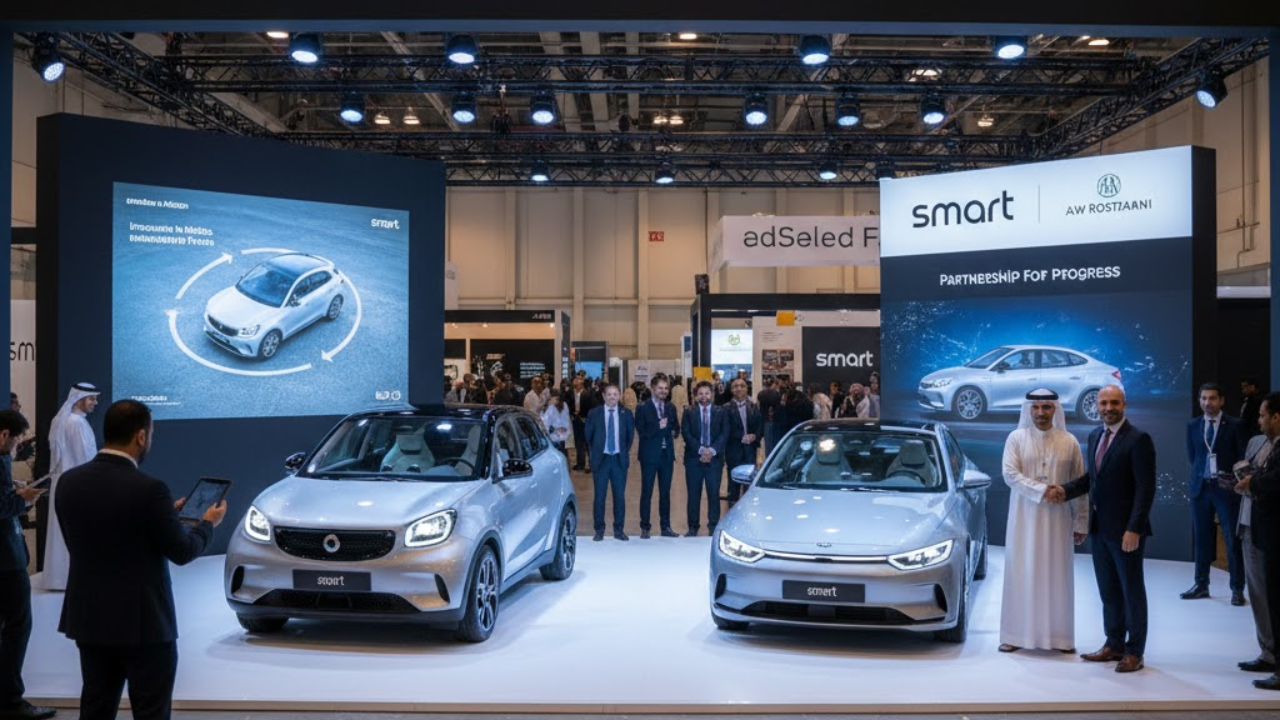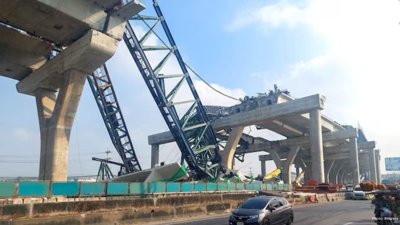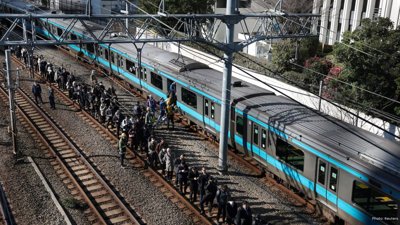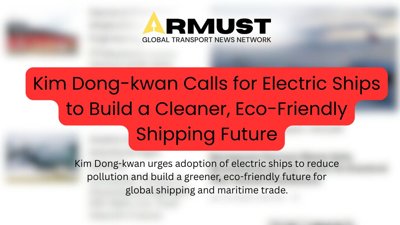
Post by : Meena Rani
At WETEX 2025 (Water, Energy, Technology, and Environment Exhibition) in Dubai, smart—the global urban mobility brand—and AW Rostamani Group presented a striking vision of the future of urban transport in the UAE. They unveiled their lineup of premium electric vehicle (EV) models, including high-performance Brabus variants, and engaged in panel discussions on charging infrastructure, industry collaboration, and scaling clean mobility. This move signals their commitment to aligning with the UAE’s path toward sustainability, electrification, and next-gen mobility.
Let’s analyze what they showed, what it means for urban mobility in Dubai/UAE, challenges ahead, and how this fits the broader EV & smart city ambitions.
smart has always branded itself as a nimble, urban-first mobility player. In the UAE context, the show at WETEX—with Brabus EVs—elevates that positioning into the premium EV segment. The focus is not just on affordability or utility, but performance, branding, and innovation for discerning buyers in dense urban markets.
By bringing high-spec EVs to the UAE market, smart + AWR (AW Rostamani) are signaling confidence: that the local market is ready for electric mobility, even at premium levels. They’re testing consumer appetite, brand acceptance, and charging infrastructure alignment.
Events like WETEX help mobilize other stakeholders—charging infrastructure providers, utilities, regulators, fleet operators—since they all see a hardware brand making a push. That builds momentum across the ecosystem, fostering partnerships, investment, and regulation to support EV adoption. WETEX’s broader theme strongly supports this: showcasing AI, hydrogen, clean transport technology, and EV charging infrastructure.
smart, in partnership with AW Rostamani, displayed one or more high-performance EV models, including Brabus-tuned variants. These models likely come with enhanced power, sharper styling, and differentiated branding to appeal to premium buyers in a competitive EV segment.
These models also help push the perception that EVs need not compromise on performance or image.
Executives participated in panels titled “Powering Green Transport: The Future of EVs and Charging Infrastructure” and “Scaling Clean Mobility – Infrastructure, Policy & Industry”. They addressed how vehicle technology, public-private collaboration, regulation, charging networks, and business models must evolve together.
smart + AWR’s effort aligns with UAE’s Net Zero 2050 Strategy and Green Mobility Strategy 2030. By presenting next-gen EV models locally, they echo government ambitions to decarbonize transport, expand EV adoption, and reduce emissions.
They also highlight the need for robust charging infrastructure, grid readiness, and incentives to enable uptake.
With smart’s premium EVs entering the local market, the supply side of high-end electric mobility improves. Buyers seeking luxury, performance, or brand prestige will have more options, increasing competitive pressure on legacy ICE models or lower-end EVs.
To support premium EVs, charging infrastructure must scale—fast, accessible, reliable, and ideally smart/fast-charging. The showcase draws attention to gaps in charger coverage, grid capacity, interoperability, and public-private coordination.
Seeing global premium EV brands on display locally builds trust. Buyers are more likely to adopt EVs when they can see them in person, test features, compare specs, and feel confident about after-sales service. This helps overcome “range anxiety” and perception barriers.
While smart is passenger-focused, the signal also helps adjacent sectors—electric taxis, shared mobility fleets, delivery EVs. If premium consumer EVs gain traction, business use cases may follow.
smart + AWR’s initiative may lead to UAE-specific editions (battery choices, climate optimization, feature localization). It also signals to neighboring GCC and Middle East markets that premium EVs are increasingly viable in hot, high-solar environments.
Premium EVs often require high-current or fast-charging support. The UAE grid and charging network must scale to handle new load peaks, power demand, and distribution capacity to avoid bottlenecks.
High ambient temperatures, desert climate, and extended highway usage challenge battery range and thermal management. premium EVs must be heat-optimized and resilient under load.
Brabus or performance variants may demand higher price tags, raising the bar for consumer willingness to pay. The value proposition must justify the premium: brand, performance, prestige, and longevity.
To succeed, smart + AWR need strong service networks, spare parts availability, battery support, and customer assurance. Any weakness in after-sales can damage brand reputation.
Consumer adoption will benefit from favorable incentives (subsidies, fee waivers, home charger support). Policy alignment, import norms, registration rules will affect uptake.
Launch dates & pricing
Will the premium models be available in UAE markets soon? At what price points?
Charging infrastructure announcements
Whether smart or AWR partners with charger companies or utilities to build fast or ultra-fast charging corridors.
Fleet or pilot programs
Deployment of smart EVs in pilot fleets (taxi, government vehicle, shared mobility) to test real-world performance.
Consumer marketing & uptake
Ads, test drive programs, early adopter incentives — how they push market adoption.
Local partnerships and localization
Local manufacturing, battery assembly, or R&D in UAE to reduce costs and optimize for climate.
Ecosystem growth
More brands, OEMs, startups, charging firms, battery vendors entering the premium EV domain in GCC.
Disclaimer
This article is for informational and educational purposes only and does not constitute financial, investment, or legal advice. Readers should verify technical specs, market availability, and policy details with official smart, AW Rostamani, or Dubai/UAE authorities before making decisions.
smart EV, AW Rostamani, WETEX 2025, urban mobility, premium electric vehicles, Dubai clean transport










Advances in Aerospace Technology and Commercial Aviation Recovery
Insights into breakthrough aerospace technologies and commercial aviation’s recovery amid 2025 chall

Defense Modernization and Strategic Spending Trends
Explore key trends in global defense modernization and strategic military spending shaping 2025 secu

Tens of Thousands Protest in Serbia on Anniversary of Deadly Roof Collapse
Tens of thousands in Novi Sad mark a year since a deadly station roof collapse that killed 16, prote

Canada PM Carney Apologizes to Trump Over Controversial Reagan Anti-Tariff Ad
Canadian PM Mark Carney apologized to President Trump over an Ontario anti-tariff ad quoting Reagan,

The ad that stirred a hornets nest, and made Canadian PM Carney say sorry to Trump
Canadian PM Mark Carney apologizes to US President Trump after a tariff-related ad causes diplomatic

Bengaluru-Mumbai Superfast Train Approved After 30-Year Wait
Railways approves new superfast train connecting Bengaluru and Mumbai, ending a 30-year demand, easi